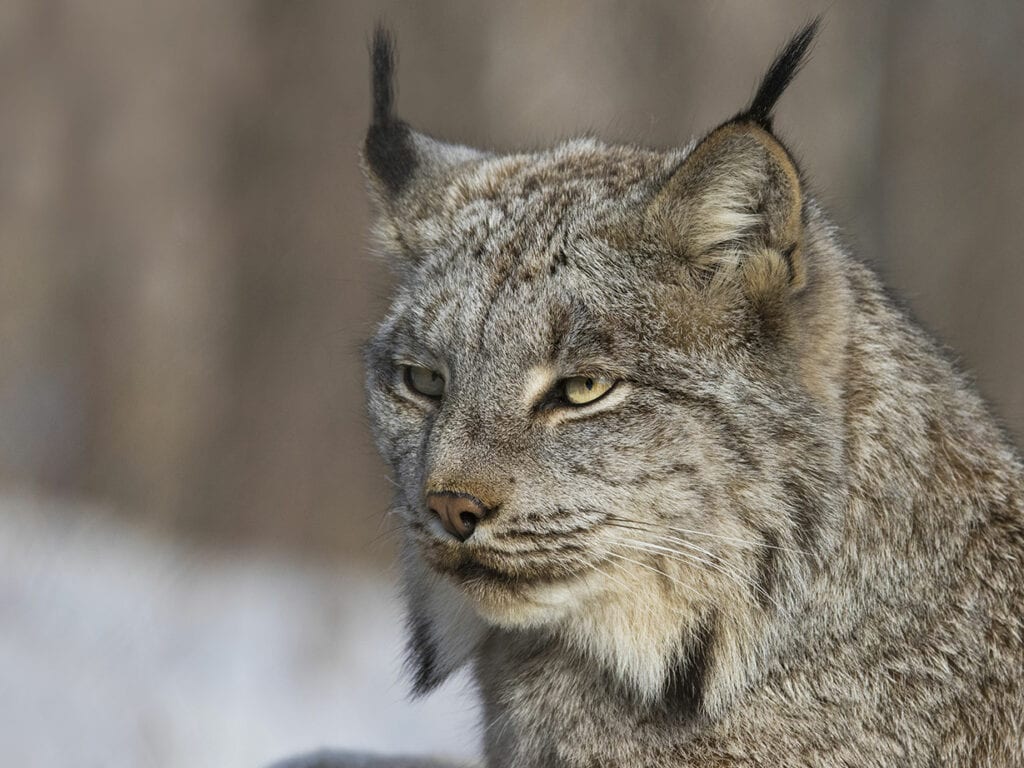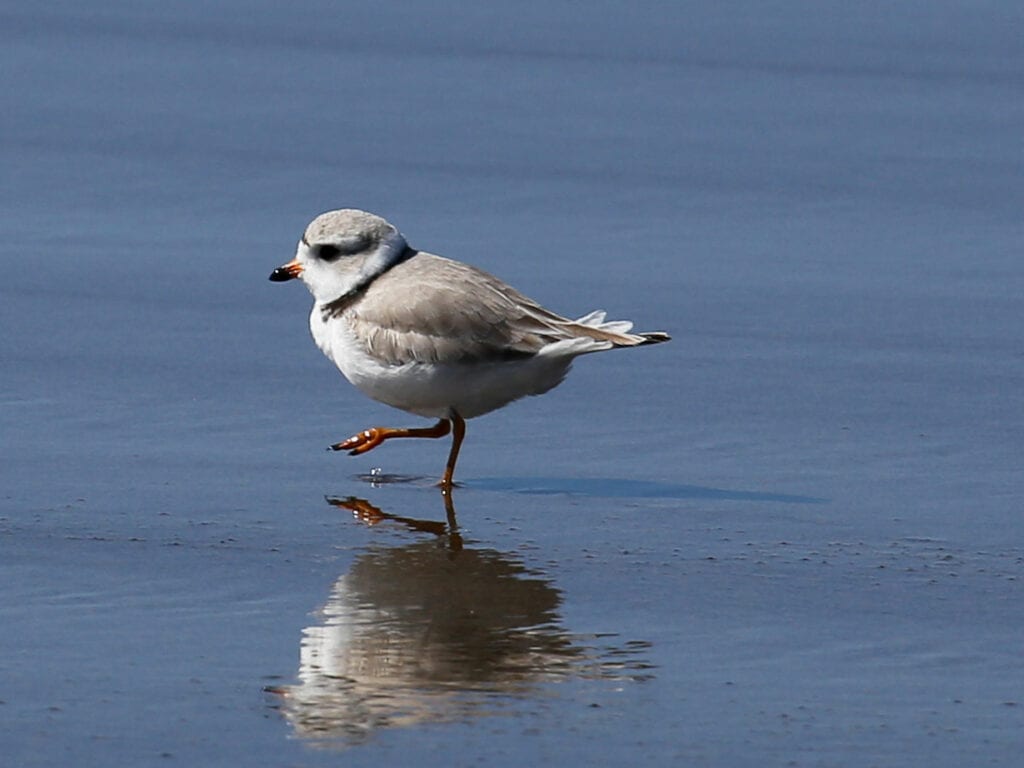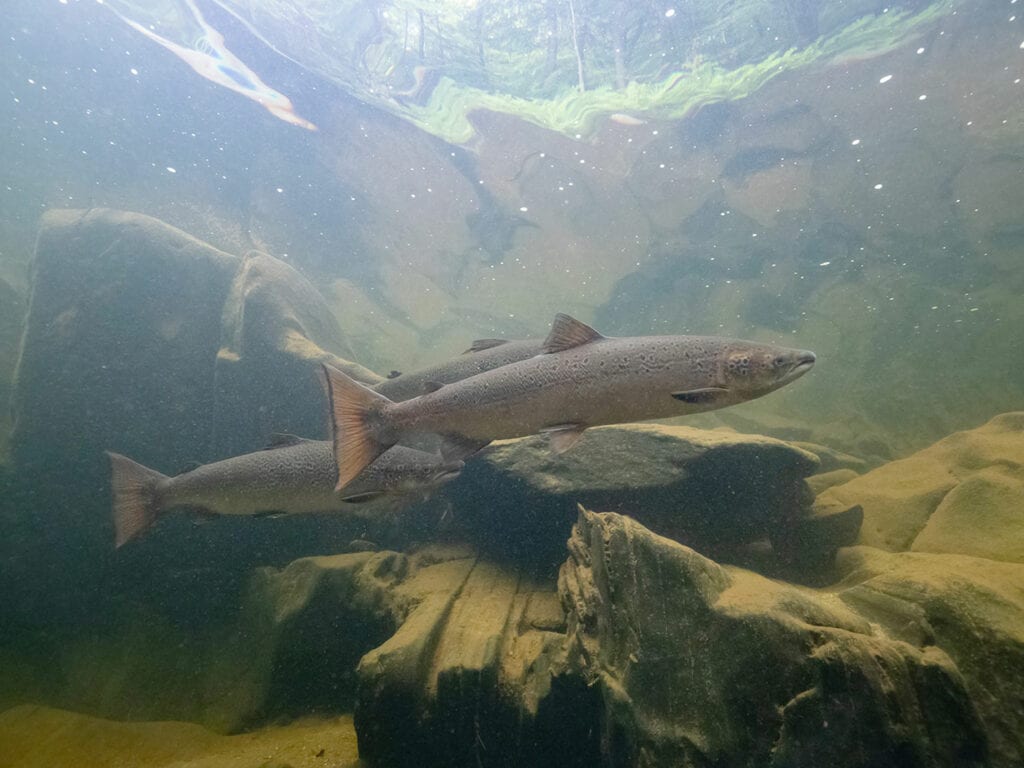Spotting a Canada lynx is an exciting, once-in-a-lifetime moment for many in Maine’s North Woods. As is watching a wild Atlantic salmon swim upstream to spawn or a Piping Plover trot across a sandy beach. These inspiring animals have something in common not only because they wow us when we have the opportunity to see them, but also because they are all endangered species. We must do all we can to keep from losing them forever.
Those of us at the Natural Resources Council of Maine (NRCM) are encouraged to see so much momentum behind climate action in Maine. However, there is another wicked challenge brought on by human activity that also deserves our attention: the sixth mass extinction of many of the planet’s species.
Maine is not immune to this biodiversity crisis. We cannot ignore threats to species of plants and animals here at home that have defined our history and make this a special place to live, work, and play.

Canada lynx
There are many species at risk of extinction in Maine, including the wild Atlantic salmon, Canada lynx, and Piping Plover, all of which play important ecological and cultural roles. More than one-third of the 442 plants and animals in Maine will experience at least a 66% decline in population by 2100 as a result of the impacts of climate change, according to a report from Manomet. Another one-third are moderately vulnerable. According to a Maine Climate Council report written by Maine-based scientists, 34-58% of species will go extinct given current climate change scenarios, and, according to a study published in Science, 2.9 billion birds—on average, one in every four— have disappeared from North America since 1970.
That is why NRCM is working so hard to prevent habitat loss, degradation, and fragmentation through our Forests and Wildlife initiatives. In addition to state-based efforts, we are urging the U.S. Congress and federal agencies to address increasing threats to species by expanding funding for the Endangered Species Act and adopting a new National Biodiversity Strategy.
Biodiversity loss is an ecological crisis facing our planet that matches the threat posed by climate change, and scientific findings tells us that both are the direct result of human activity. In 2019, the Intergovernmental Science-Policy Platform on Biodiversity and Ecosystem Services published a report that concluding that one million species are threatened with extinction. Habitat conversion is the biggest driver of wildlife population declines, though pollution, climate change, invasive species, and wildlife exploitation have also contributed to the decline of plants, animals, and other species worldwide.
This biodiversity crisis presents a direct threat to human health and security by impacting nature’s ability to provide critical ecosystem services, like clean air and water. Protecting the world’s rich diversity of fish and wildlife, plants, and other forms of life is akin to ensuring goods and services that we derive from nature will last many lifetimes. At little to no cost, nature benefits society by supporting fisheries and pollinating our crops, providing medicines that keep people healthy, controlling erosion and water runoff, buffering against storms, and supplying food and fiber, among a multitude of others.

Piping Plover at Reid State Park in Georgetown, Maine. Photo by David Small
We need to do everything in our power to protect the planet’s biodiversity. Every species plays a role in maintaining a functioning ecosystem that supports a healthy, safe environment for current and future generations to live in. To protect Maine’s amazing array of plants and animals, NRCM works to:
- Protect remote wilderness that ensure large, unfragmented wildlife habitat;
- Create more public lands and conservation easements so that habitat is not converted to other uses;
- Secure funding for the Land for Maine’s Future program that protects special places;
- Prevent sprawling development from encroaching into important habitat areas;
- Enact scientifically rigorous forest practices laws and regulations (and enforcement) that strike a balance between ecological integrity and human uses;
- Remove dams in rivers like the Kennebec and Penobscot that block endangered fish from reaching upstream habitat; and
- Implement ambitious, bold climate and clean energy goals to slow the impacts of climate change.

An adult Atlantic salmon in the Sandy River. Photo by Atlantic Salmon Federation
Acting locally will not be enough. We need a national approach to this problem. Congress should pass a National Biodiversity Strategy resolution calling for a “whole of government” approach to addressing the extinction crisis. We also urge federal lawmakers to boost funding for the Endangered Species Act, which will help Maine species like endangered Canada lynx, Piping Plover, and Atlantic salmon and bring many other plants and animals s across the nation back from the brink.
We are doing our part. Now it is time for the nation to act and play a leadership role in protecting the health of the planet by taking action to protect biodiversity from further decline.
—Melanie Sturm, NRCM Forests & Wildlife Director










Leave a Reply